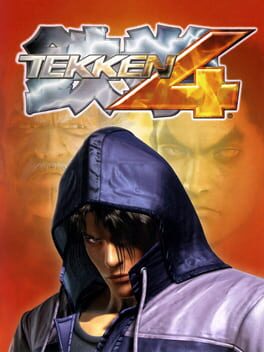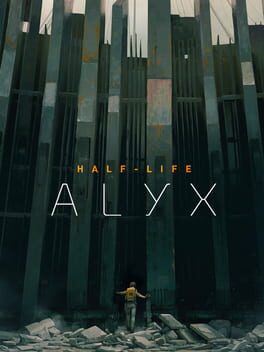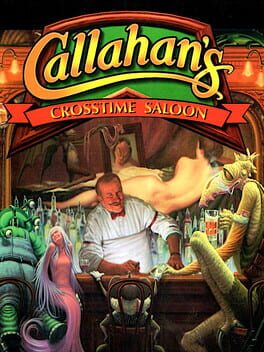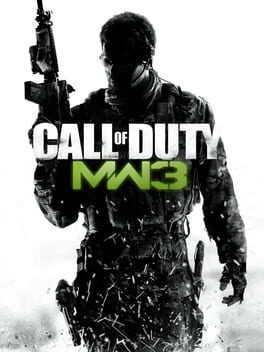Harkov
2022
A real fascinating throwback to the survival horror of yore, intertwining a melange of modern influences à la Evangelion, Ghost in the Shell, Silent Hill, lo-poly PS1 aesthetic that's sure to win the hearts of the public, and the regurgitation of even greater 'highbrow' aspirations like David Lynch, Germanic Academic Art painters and canonical classical literature, if not a bethy of classical music for yours truly.
But where then, do these quotations and references and influences ever really go? SIGNALIS is impressive from the offset but slowly but surely finds itself at a standstill, its aspirations as the "classic survival horror" experience plays out all the classic tropes and set-pieces; yet never seemingly, out of want and do, to exceed its aspirations. Even its systems and mechanics seem rotely stuck to the same hide and seek combat inventory management of an PS1 RE1 but stubbornly so, much less any of the modern REs, or even a Silent Hill. Perhaps modern horror is just as rote, if not worse in its cliches, but does one have to pretend that hiding from monsters to preserve ammo and resources is any different than hiding from monsters to simply survive?
It then has to rely on its narrative, trapped in a shell of seemingly impressive influences and quotations, bringing out across a story of the eternal recurrence, touching upon ideas of self-hatred, the spotty nature of memories, and the identities we trap ourselves in. Yet for all of that does it seem incapable of having some kind of human touch to ground it all; sure, it's impressive to bring about the rhythmic experimentation of Hideaki Anno's direction and edits into a video game, playing around with cutscenes, perspective, and space, but rarely does an effect become more and more stifling as it keeps coming and going, if not slightly detached from its ongoings. For every in-game note that spouts exposition, there might be a note that says something about life on the ship, the society they live, and the memories they leave behind, but none properly feel the weight of its own world as a whole, nor have some kind of rabid and salacious curiosity in its own aesthetics of blood, guts, and death to seek its own thrills in its aesthetic and atmosphere. The result feels a game that is rather overburdened with its own form, to better convey the emotions or thrills that it strains forward to do; the whiff of Schubert and Moonlight Sonata playing here and there only serves a lingering reminder, the act itself ever so elaborated and put-upon.
If this is the best modern horror can do, then maybe we are fated to that eternal recurrence that Elster and co find themselves in, yearning for something that truly crawls under our skins. But hey, are you really willing to go through this once more? You've seen what happens.
But where then, do these quotations and references and influences ever really go? SIGNALIS is impressive from the offset but slowly but surely finds itself at a standstill, its aspirations as the "classic survival horror" experience plays out all the classic tropes and set-pieces; yet never seemingly, out of want and do, to exceed its aspirations. Even its systems and mechanics seem rotely stuck to the same hide and seek combat inventory management of an PS1 RE1 but stubbornly so, much less any of the modern REs, or even a Silent Hill. Perhaps modern horror is just as rote, if not worse in its cliches, but does one have to pretend that hiding from monsters to preserve ammo and resources is any different than hiding from monsters to simply survive?
It then has to rely on its narrative, trapped in a shell of seemingly impressive influences and quotations, bringing out across a story of the eternal recurrence, touching upon ideas of self-hatred, the spotty nature of memories, and the identities we trap ourselves in. Yet for all of that does it seem incapable of having some kind of human touch to ground it all; sure, it's impressive to bring about the rhythmic experimentation of Hideaki Anno's direction and edits into a video game, playing around with cutscenes, perspective, and space, but rarely does an effect become more and more stifling as it keeps coming and going, if not slightly detached from its ongoings. For every in-game note that spouts exposition, there might be a note that says something about life on the ship, the society they live, and the memories they leave behind, but none properly feel the weight of its own world as a whole, nor have some kind of rabid and salacious curiosity in its own aesthetics of blood, guts, and death to seek its own thrills in its aesthetic and atmosphere. The result feels a game that is rather overburdened with its own form, to better convey the emotions or thrills that it strains forward to do; the whiff of Schubert and Moonlight Sonata playing here and there only serves a lingering reminder, the act itself ever so elaborated and put-upon.
If this is the best modern horror can do, then maybe we are fated to that eternal recurrence that Elster and co find themselves in, yearning for something that truly crawls under our skins. But hey, are you really willing to go through this once more? You've seen what happens.
2001
With people rightfully slamming the game for its egregious balance and mechanical issues and also rightfully praising the game for its strengths in aesthetics and ambition, Tekken 4 has slowly claimed its status as a black sheep and a cult classic over the years, seating itself as an example of the industry's peak development and experimentation in 3D.
For fighting games, this meant an awareness of a real z-axis, real dimensional depth that allowed for greater movement and possibilities in developing a space. While Tekken and other 3D fighting games (Virtua Fighter, DOA, etc) of its ilk had understood this to a technical and mechanical degree, what did that meant for aesthetic and narrative design?
Tekken 4 feels like a strange glimpse at a hypothetical timeline where Tekken had finally achieved a cohesion in aesthetic design work that breathed a coherent worldview, tone, and sensibility that feels fully formed. Obviously this isn't a novel concept to fighting games to begin with, where aesthetics are judge, jury, and executioner, but how many of them can achieve this level of primal emotionalism and immediacy in its tone and atmosphere, not much less of its characters?
On a merely impressionistic level, Tekken 4's foreboding gloom, laden with cold tones and rather muted, garish lighting and palette, facsimiles of now real mundane places turning into grand fighting stages with deliberate changes in elevation and interior and exterior design that feels lived-in and tangible in its usage of 3D space, a droning techno and drum and bass electronica soundtrack matching its 2000s zeitgeist, mechanical changes meant that now on a basic and primal level, Tekken's fights felt like brawls rather than a structured match, an insistence on pokes and free movement and repositioning meant kill or be killed. Some say this meant Tekken had only pivoted to being "realistic", but perhaps it's better to see it as an evolution to a heightened, stylized reality, where the acknowledgement of a wider world finally becomes the grand stage for Tekken's theatrics on power and balance.
One could mince that for all these achievements, it still means nothing on the notion of actual gameplay, where Tekken 4 is nothing but a noble failure of broken infinites, uneven balance in elevation in terrain, uneven consistency in collisions in walls and obstacles (the pillars!), the list goes on.
Obviously fighting games should be appreciated on a purely mechanical and systematic level, where competitive play really matters. But where does one go if that all fails? Are they doomed to a 9 to 5 loop of combo grinding, frame data, numpad notations, match up learning, and tier lists, mumbling underneath about "yomi" and "unsafe on block"? Maybe that's just how it is. Can you blame them?
For fighting games, this meant an awareness of a real z-axis, real dimensional depth that allowed for greater movement and possibilities in developing a space. While Tekken and other 3D fighting games (Virtua Fighter, DOA, etc) of its ilk had understood this to a technical and mechanical degree, what did that meant for aesthetic and narrative design?
Tekken 4 feels like a strange glimpse at a hypothetical timeline where Tekken had finally achieved a cohesion in aesthetic design work that breathed a coherent worldview, tone, and sensibility that feels fully formed. Obviously this isn't a novel concept to fighting games to begin with, where aesthetics are judge, jury, and executioner, but how many of them can achieve this level of primal emotionalism and immediacy in its tone and atmosphere, not much less of its characters?
On a merely impressionistic level, Tekken 4's foreboding gloom, laden with cold tones and rather muted, garish lighting and palette, facsimiles of now real mundane places turning into grand fighting stages with deliberate changes in elevation and interior and exterior design that feels lived-in and tangible in its usage of 3D space, a droning techno and drum and bass electronica soundtrack matching its 2000s zeitgeist, mechanical changes meant that now on a basic and primal level, Tekken's fights felt like brawls rather than a structured match, an insistence on pokes and free movement and repositioning meant kill or be killed. Some say this meant Tekken had only pivoted to being "realistic", but perhaps it's better to see it as an evolution to a heightened, stylized reality, where the acknowledgement of a wider world finally becomes the grand stage for Tekken's theatrics on power and balance.
One could mince that for all these achievements, it still means nothing on the notion of actual gameplay, where Tekken 4 is nothing but a noble failure of broken infinites, uneven balance in elevation in terrain, uneven consistency in collisions in walls and obstacles (the pillars!), the list goes on.
Obviously fighting games should be appreciated on a purely mechanical and systematic level, where competitive play really matters. But where does one go if that all fails? Are they doomed to a 9 to 5 loop of combo grinding, frame data, numpad notations, match up learning, and tier lists, mumbling underneath about "yomi" and "unsafe on block"? Maybe that's just how it is. Can you blame them?
2022
Unwieldy, genuinely frustrating and sometimes aimless without abandon, this is still one of the most ambitious and freshest takes on the Souls formula with a clear focus on the idea and allure of limitless power and strength, and how that colors over its world and its characters, but even through the player themselves, seeking through many of its vast amount spells and equipment, growing in immense might by the end. It's truly a genuine journey in a way perhaps most open world games lack, a true adventure in the player's own making.
2020
2020
The mountains of goofy and expository flavor text on every little speck or item or character in the game and the mostly pointless, but endlessly entertaining dialogue trees goes a long way inviting a habitual, laid-back sense of play that invokes the pleasures of hanging out in the way the wanderlust nature of the best western adventure games do best.
It's arguable to say most games of its ilk never seemed to understand what made the MW series work! Doubly so for its much derided campaigns, mindless shooting for equally mindless setups.
Even if I'd be remiss to call this truly great, there's something to the encounter and level design of this game that feels like a lost art to me with its expansive, linear driven spectacle that feels calculated as it is deliberate. This form of game design was derided then as it is now, but how many of them communicate such a clear, readable sense of flow and variety that keeps the player focused? So to speak, its structure predominantly supposed on making you constantly aware of every pinpoint action and view you're making with clear, legible enemies that have distinguishable silhouettes and composition for its encounter design bolstered by its generous usage of cover placed throughout much of its level design promote this mindset heavily, especially with how its pacing is always changing into discrete chunks of gameplay variety (perspective switching and mechanic mixups galore) that is always shifting. It's intuitive and snappy to a degree "cinematic" games need to be, with an immediacy to back it up. Doesn't that give a wiff, but faint calling of the pleasures of the once dominant light gun shooter, where twitch aiming and setpieces takes precedence over anything else?
MW3 to its advantage and detriment amps this up to a bloated degree, its theatrical, jingoistic sense of war into an intense pyrrhic thrill ride, the machismo firing on all cylinders into something dazzling.
Even if I'd be remiss to call this truly great, there's something to the encounter and level design of this game that feels like a lost art to me with its expansive, linear driven spectacle that feels calculated as it is deliberate. This form of game design was derided then as it is now, but how many of them communicate such a clear, readable sense of flow and variety that keeps the player focused? So to speak, its structure predominantly supposed on making you constantly aware of every pinpoint action and view you're making with clear, legible enemies that have distinguishable silhouettes and composition for its encounter design bolstered by its generous usage of cover placed throughout much of its level design promote this mindset heavily, especially with how its pacing is always changing into discrete chunks of gameplay variety (perspective switching and mechanic mixups galore) that is always shifting. It's intuitive and snappy to a degree "cinematic" games need to be, with an immediacy to back it up. Doesn't that give a wiff, but faint calling of the pleasures of the once dominant light gun shooter, where twitch aiming and setpieces takes precedence over anything else?
MW3 to its advantage and detriment amps this up to a bloated degree, its theatrical, jingoistic sense of war into an intense pyrrhic thrill ride, the machismo firing on all cylinders into something dazzling.






